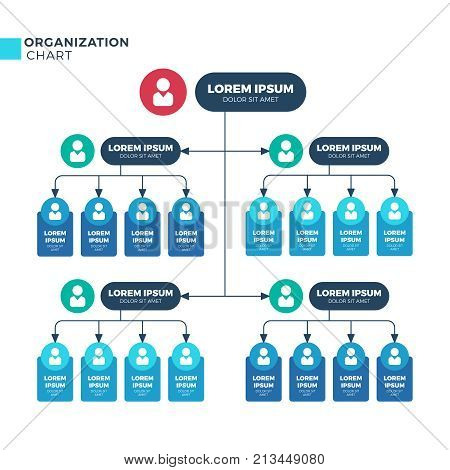

The company does not update the figures as per the market records. For instance, a company purchased the property 50 years ago for Rs. 10 lakhs; at present, the property valuation is Rs.50 lakhs. However, if the company maintains historical accounting, it will record the property price of Rs.10 lakhs only.
It’s important for many parties involved in a business, including management, employees, and consumers. Although cost accounting and financial accounting are interrelated, they provide different results. Cost accounting tells you about the cost of producing individual items, while financial accounting shows you profit and loss for the company as a whole.
Experts stated that in relevant costing, period of comparison is often incomplete or incomparable. Timing of cost and benefit is not important in the technique of relevant costing. On the contrary, the financial analyst considers the cash flow along with the timing of it. The consideration of time factors allows the discontinuation in the cash flow in financial management theories.

Since related price method takes into consideration solely the relevant costs and relevant revenues, it simplifies the administration decisions. Irrelevant prices don’t have any bearing when choosing over totally different alternatives. They do not make any distinction and make no impact in making selections. Firstly, by mistake, irrelevant prices are taken as relevant costs. They will complicate the situation as well as increase the chance of faults. Secondly, similar unit prices of fixed manufacturing prices are taken for different exercise level.
Relevant and Irrelevant Costs
For instance, spare parts manufacturing companies use this method. Sunk costs refer to the expenses which are not recoverable in future. Installing machinery in production is a sunk cost as you cannot recover it further.
Which is always a relevant cost?
Only unavoidable costs are relevant. Fixed costs have to be incurred whether or not decisions are made. Sunk costs cannot be recovered and hence irrelevant.
ABC works on the principle of ‘controlling activities to control cost’. Activities and the related expenses and cost drivers are identified before working out the cost of the product. The idea behind the concept of opportunity cost is that the cost of one item is the lost opportunity to do something else.
Management accounting is forward-thinking, thus it should be able to process economic information and data so that it may be used by management. Decision making in business should be driven by facts and figures. Most of the daily transactional information of an organization is too minute and detailed to assess at a glance. Management accounting extracts reports and insights from the actual data to answer important questions. So, management accounting helps in making decisions based on the actual accounting data.
Why is relevant cost important?
In business, sunk costs are typically not included in consideration when making future decisions, as they are seen as irrelevant to current and future budgetary concerns. Traditional cost management programs primarily focus on cost reduction and cost control by allocating production overheads and costs. However, excessively focusing on cost reduction has severe negative impacts on quality, customer experience, development and business growth, making traditional methods unreliable.
- It places focus on the creation and maintenance of internal controls while still adhering to legal and traditional criteria for the preparation of financial statements .
- Solutions for Which of the following costs are the most relevant for decision making?
- TQM emphasizes setting the highest standards and consistently tries to meet or exceed customer expectations.
- The analysis includes the cost of planning, production, research and development, replacement cost and disposal.
Expenditure and cost analysis can be used to plan and spend the company budget more efficiently. Financial accounting is a statutory requirement for a business to maintain financial records and compile financial statements. These statements are useful for submission to authorities, financial institutions, management and shareholders. But, financial information is also essential to monitor the business and drive business decisions on a day to day basis. Management accounting is the process of managing the financial information that is related to the operational aspects of a business. It is vital for a business to have an accurate and relevant management accounting system and reports so that the organization can respond and make decisions that are based on the actual financial metrics.
What is Cost Concepts and Different Terms of Costs:
Relevant cost is a managerial accounting term that describes avoidable costs that are incurred only when making specific business decisions. The concept of relevant cost is used to eliminate unnecessary data that could complicate the decision-making process. The typical budgeting process is translating a long-range strategy into annual operating plans that are pushed down to finance, lines of business, and operations. This communicates the financial targets across the organization in every line of business. Some examples of this are revenue and expense budgets, R&D costs, marketing expenses, project costs and revenues, and capital expenditures.
This formula helps in deriving the total costs incurred in production. It helps calculate the expenses incurred when a company takes on contractual work. For instance, construction companies use this method of costing.

So, good management accounting helps the different levels of management better control the operations of the company. By cutting costs that drain the company’s resources and allocating more resources to the projects that work well, a company can increase its profits. A company may have many projects, products or planned projects that call for attention. It is essential that the company chooses the right one to spend resources on for the best returns. If there are limited funds or resources, this choice becomes even more important. Management accounting helps management compare the cost analysis and determine which expenditure would be the wisest.
What is Money in Ancient Times | Stages in The…
The idea of opportunity cost in the concept of the cost was first begun by John Stuart Mill, a major in Economics. Indirect costs are expenses that could not be traced back to a single cost object or cost source. However, they are extremely important as they affect the total profitability. Before taking the decision, managers must determine the variables that may have bearing on the choice and try to get information about those variables. Relevant price, in managerial accounting, denotes to the incremental and pointless value of implementing a enterprise decision. Maintaining cost records in a systematic manner is the first stage for correct determination of the cost.
What are the 4 types of cost?
Costs are broadly classified into four types: fixed cost, variable cost, direct cost, and indirect cost.
In the direct costing technique, only variable costs are considered for cost accounting. However, this process is generally used for short-term decision-making. Using a direct cost accounting procedure for a long-term decision can be hazardous as it does not include all types of costs.
The cost incurred on such replacement may be identified as an urgent cost. What is Imputed Cost and Opportunity Costs – Imputed costs are notional costs and do not involve any cash outlay These costs are also computed and A considered only for decision-making purpose. 2.What is Uncontrollable Costs – These are the costs which can not be influenced by relevant cost meaning the action of a specified authority. Generally fixed costs are beyond the influence of departmental heads, these are decided by the top management. A sunk cost is a cost that has already occurred and cannot be recovered by any means. Sunk costs are independent of any event and should not be considered when making investment or project decisions.
Higher production costs higher expenses and lower production costs lower expenses. If the production is more, the business will pay more and vice versa. With heightened competition in today’s world, companies are urged to make maximum profits. The company’s decision to maximize earnings relies on the behavior of its costs and revenues. Besides the concept of opportunity cost, there are several other concepts of cost namely fixed costs, explicit costs, social costs, implicit costs, social costs, and replacement costs. It refers to the amount of payment made to acquire any goods and services.
What are relevant costs also known as?
A relevant cost (also called avoidable cost or differential cost) is a cost that differs between alternatives being considered. In order for a cost to be a relevant cost it must be: Future. Cash Flow.
Each of them is further divided into direct and indirect costs. The indirect material, labor and expenses can be categorized as overhead costs. Each budget line item is reviewed without the influence of the last period’s actuals as a baseline. Each item is carefully evaluated to determine if any programs, services, or activities will be increased, maintained, reduced, or removed.
A relevant cost is also defined as a cost whose amount will be affected by a decision being made. Management should believe only future costs and revenues that will differ under each alternative . Relevant costs are accepted future costs and relevant profits are expected future revenues that differ among the alternative course of action being considered .
What is relevant cost vs irrelevant cost?
Relevant costs are costs that will be affected by a managerial decision. Irrelevant costs are those that will not change in the future when you make one decision versus another. Examples of irrelevant costs are sunk costs, committed costs, or overheads as these cannot be avoided.